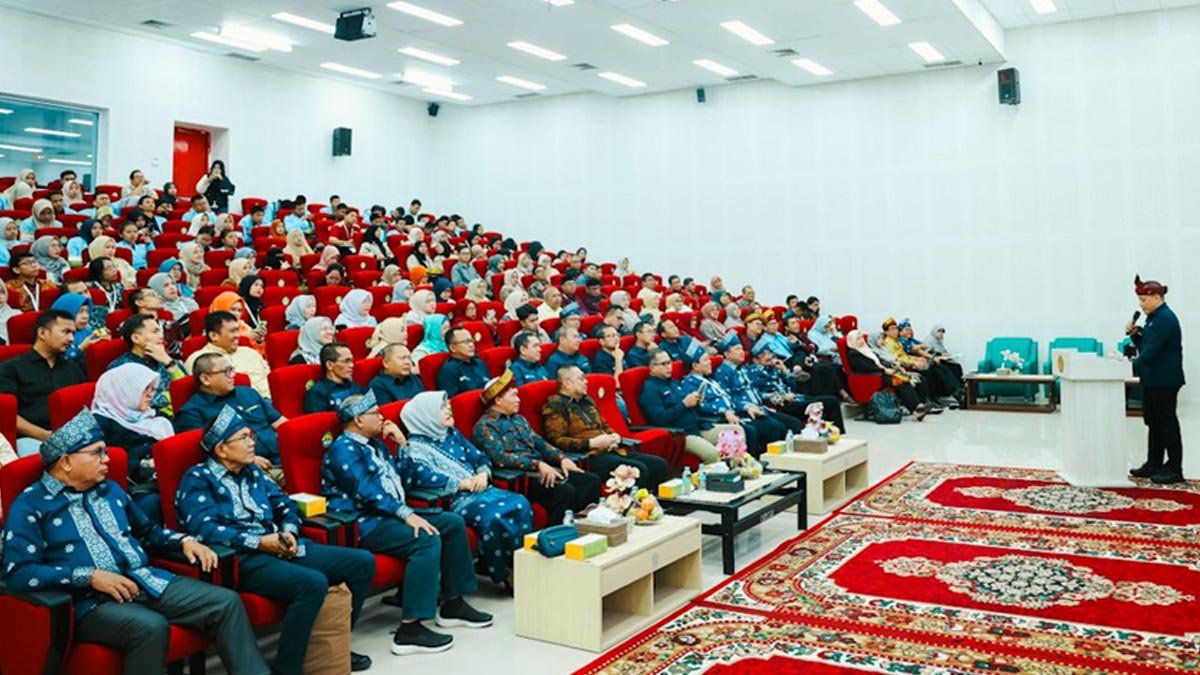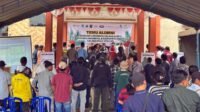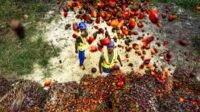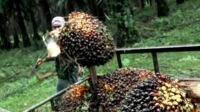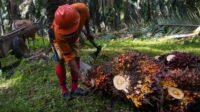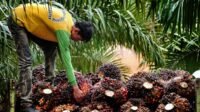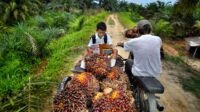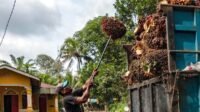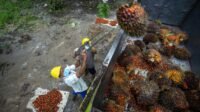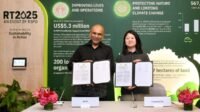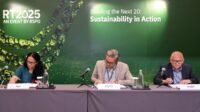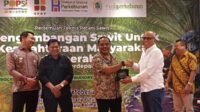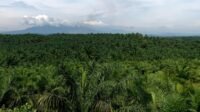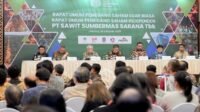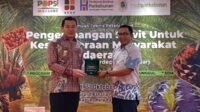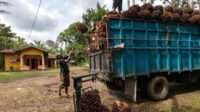PALMOILMAGAZINE, JAKARTA – The President Director of PTPN IV PalmCo, Jatmiko Santosa, emphasized that the smallholder oil palm replanting program (PSR) is a strategic step to safeguard Indonesia’s food and energy security. He conveyed this during his presentation at The 2nd International Conference on Agriculture, Food and Environmental Science (ICAFES) 2025 held at the University of Riau, Pekanbaru.
According to Jatmiko, collaboration is essential to achieving this goal, particularly through boosting the productivity of smallholder oil palm plantations, which still hold vast potential for improvement. “The biggest room for strengthening food and energy security lies with smallholders. If their productivity rises, so will competitiveness and contribution to the national economy,” he said in Jakarta.
Currently, the average productivity of smallholder plantations is only around 2–3 tons of crude palm oil (CPO) per hectare per year, far below the 6 tons achieved by professionally managed estates. To bridge this gap, PalmCo has rolled out several initiatives, including the State-Owned Enterprises Program for Smallholders, distribution of certified high-yield seedlings—more than two million already adopted by farmers—alongside an off-taker scheme covering over 10,200 hectares. PalmCo is also strengthening cooperatives as the backbone of partnership models.
Also Read: BPDP, Ditjenbun, and IPB Training Collaborate to Boost Palm Oil Farmers’ Skills in Aceh
By 2024, PalmCo had facilitated disbursements from the Palm Oil Plantation Fund Management Agency (BPDPKS) to support smallholder replanting across 15,321 hectares. The results are evident: plasma plantations under the program have reached an average yield of 12.57 tons per hectare, with some achieving up to 18.05 tons—exceeding the national benchmark of 12 tons.
Jatmiko underlined that the success of PSR not only enhances farmer welfare but also reinforces palm oil’s role as a pillar of food and energy security. He further highlighted the government’s target to implement the B50 biodiesel program by 2027, which he believes will be more attainable if smallholder productivity continues to improve through collaborative efforts.
“Through this forum, we hope to foster stronger synergy between the government, academia, researchers, and industry players to ensure the smallholder replanting initiative can move forward sustainably,” he added.
The ICAfes 2025 seminar gathered hundreds of participants, including deans of agriculture faculties across Indonesia, researchers, and students. International experts also attended, such as Johan Kieft (environment specialist, United Nations), Dr. Idesert Jelsma (Dutch researcher), Prof. Ir. Usman Pato (food security expert, Gifu University, Japan), along with academics from Malaysia and the Philippines. (P3)

